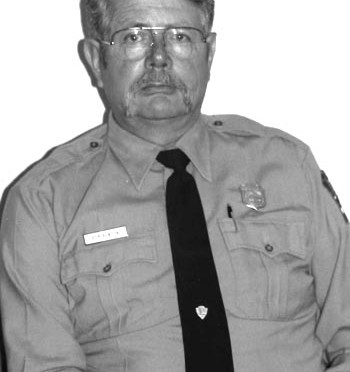They wanted the publicity?
Oh, yeah. There is no doubt about that. I know they queried us, and said what are you going to do when we show up there with our guns and all that stuff. We said we’re going to write you a citation just like we would write anybody else. “What, do you mean that you’re not going to arrest us and haul us off to jail?” We said hell, no, we don’t do that. We’re going to write you a ticket, we’ll write you a citation. So they decided that wasn’t worthwhile, either.
That could have been bad. I never worried nearly as much about that as other people did. They just simply would’ve, probably, set the whole Indian movement way, way back. And it might have set back their tribal ambitions, which, of course, they subsequently gained [Federal] recognition (21). But that might have set those back simply from the standpoint that you go futzing around in America’s favorite political entity, i.e. the National Park Service, you’re likely to get burned pretty bad. People may demonstrate at the Statue of Liberty or something, but they really don’t want to take on the national parks. Basically, we’re too popular.
So they would have preferred another federal agency or the state forest or something?
If you’re going to pick on the Park Service, let’s don’t pick on a national park, let’s go pick on a national monument, Oregon Caves or something.
I also came across, again talking about external things, about the moving of park headquarters to Prospect. How serious was that?
We looked at it as a viable option. The only thing that really made sense, taking into account the historical resources that we had there at Munson Valley, was to do what we ultimately did. However, we were asking for an awful lot of money, in terms of housing and shops and buildings and so on.
For the Munson Valley option?
Yes. We spent a lot of money. So obviously, you better look at some other things. So we looked at it. Would it have worked? Yes, it could have worked well. The largest loss, of course, is once you move the key staff away from the action, so to speak, you lose contact with the problems of the park. I have seen that happen all too many times, even in areas that I have left. I moved out of a park for a while as superintendent at Colorado, and all of a sudden things that were happening after hours that I would have gone out and looked at or been a part of on scene, I didn’t do because I didn’t jump in a car and drive the extra mile. I simply didn’t do it. And we [at Crater Lake] would have lost that. And that’s a huge negative in terms of park operations.


